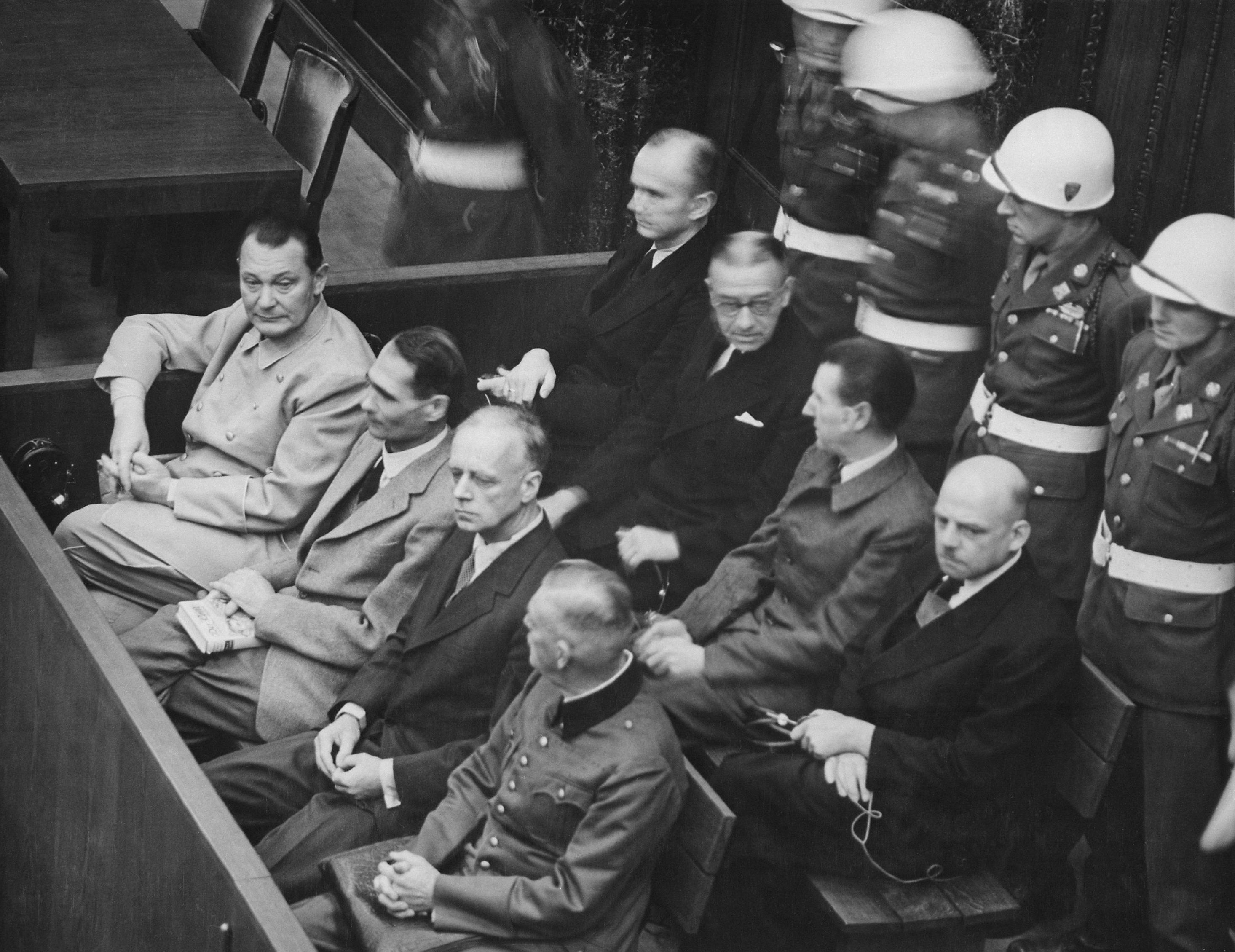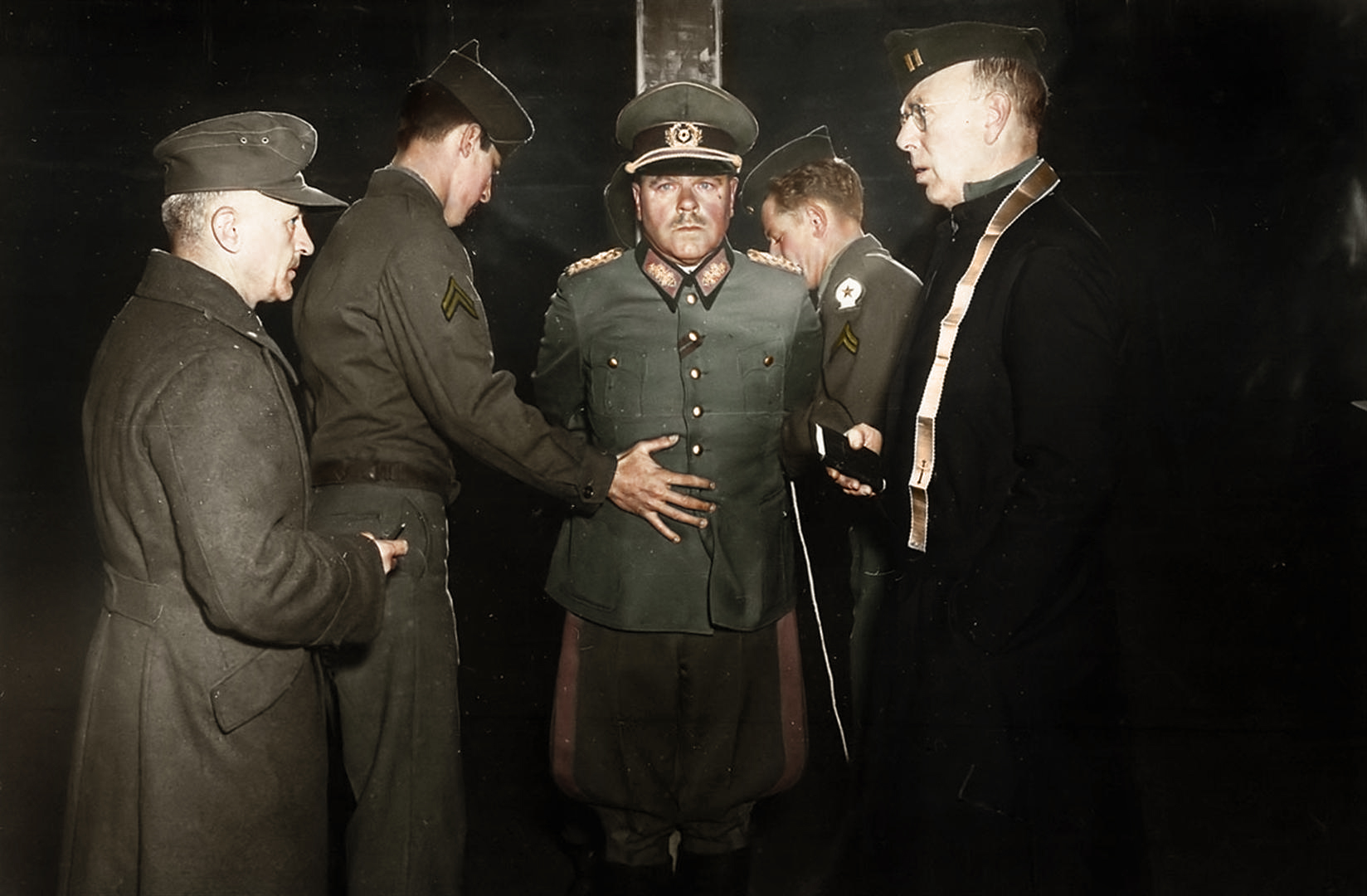|
R V Albert
''Queen v Albert'' is an important case in South African criminal law, especially as it applies to the defence of superior orders. It was heard in the Supreme Court of the Cape of Good Hope on August 5, 1895. The case had been sent up for review by the Resident Magistrate of Somerset West, under Act 20 of 1856.s 47. It came before John de Villiers, 1st Baron de Villiers, De Villiers CJ, as judge of the week. De Villiers CJ held, and Upington J concurred that, a child under fourteen years of age who assists his father in committing a crime is presumed to do so in obedience to his father's orders, and is not punishable, even if he knew that he was doing a forbidden act—unless, in the case of a child above seven years of age, the crime was so heinous as obviously to absolve him from the duty of obedience. See also * Defense of infancy * South African criminal law * Superior orders References ''Queen v Albert'' (1895) 12 SC 272. Notes 1895 in South Africa 1895 in case ... [...More Info...] [...Related Items...] OR: [Wikipedia] [Google] [Baidu] |
South African Criminal Law
South African criminal law is the body of national law relating to crime in South Africa. In the definition of Van der Walt ''et al.'', a crime is "conduct which common or statute law prohibits and expressly or impliedly subjects to punishment remissible by the state alone and which the offender cannot avoid by his own act once he has been convicted." Crime involves the infliction of harm against society. The function or object of criminal law is to provide a social mechanism with which to coerce members of society to abstain from conduct that is harmful to the interests of society. In South Africa, as in most adversarial legal systems, the standard of evidence required to validate a criminal conviction is proof beyond a reasonable doubt. The sources of South African criminal law are to be found in the common law, in case law and in legislation. Criminal law (which is to be distinguished from its civil counterpart) forms part of the public law of South Africa, as well as of t ... [...More Info...] [...Related Items...] OR: [Wikipedia] [Google] [Baidu] |
Superior Orders
Superior orders, also known as the Nuremberg defense or just following orders, is a plea in a court of law that a person, whether a member of the military, law enforcement, a firefighting force, or the civilian population, should not be considered guilty of committing actions that were ordered by a superior officer or official. The superior orders plea is often regarded as the complement to command responsibility. One of the most noted uses of this plea, or defense, was by the accused in the 1945–1946 Nuremberg trials, such that it is also called the "Nuremberg defense". The Nuremberg trials were a series of military tribunals, held by the main victorious Allies after World War II, most notable for the prosecution of prominent members of the political, military, and economic leadership of the defeated Nazi Germany. These trials, under the London Charter of the International Military Tribunal that established them, determined that the defense of superior orders was no ... [...More Info...] [...Related Items...] OR: [Wikipedia] [Google] [Baidu] |
John De Villiers, 1st Baron De Villiers
John Henry de Villiers, 1st Baron de Villiers (15 June 1842 – 2 September 1914) was a Cape lawyer and judge. He was Attorney-General in the Molteno Government, Chief Justice for the Cape Colony, and later the first Chief Justice for the Union of South Africa. As the country's most senior judge for 40 of its formative years, De Villiers is often considered the most influential judge in South African history. Early life and legal career John de Villiers was the son of Charles Christian de Villiers, of Paarl, Cape of Good Hope, and his wife Dorothea Retief. His family was of French Huguenot descent and had arrived in the Cape four generations before in 1689. His father's dying wish had been that he become a minister in the Dutch Reformed Church, however after 18 months study he found that he had no true calling to the church, and switched to studying law. He studied in Berlin and London (where he read law at the Inner Temple), was called to the English bar in 1865 and the Ca ... [...More Info...] [...Related Items...] OR: [Wikipedia] [Google] [Baidu] |
Defense Of Infancy
The age of criminal responsibility is the age below which a child is deemed incapable of having committed a criminal offence. In legal terms, it is referred to as a defence/defense of infancy, which is a form of defense known as an excuse so that defendants falling within the definition of an "infant" are excluded from criminal liability for their actions, if at the relevant time, they had not reached an age of criminal responsibility. After reaching the initial age, there may be levels of responsibility dictated by age and the type of offense committed. Under the English common law the defense of infancy was expressed as a set of presumptions in a doctrine known as doli incapax'. A child under the age of seven was presumed incapable of committing a crime. The presumption was conclusive, prohibiting the prosecution from offering evidence that the child had the capacity to appreciate the nature and wrongfulness of what they had done. Children aged 7–13 were presumed incapable ... [...More Info...] [...Related Items...] OR: [Wikipedia] [Google] [Baidu] |
Superior Orders
Superior orders, also known as the Nuremberg defense or just following orders, is a plea in a court of law that a person, whether a member of the military, law enforcement, a firefighting force, or the civilian population, should not be considered guilty of committing actions that were ordered by a superior officer or official. The superior orders plea is often regarded as the complement to command responsibility. One of the most noted uses of this plea, or defense, was by the accused in the 1945–1946 Nuremberg trials, such that it is also called the "Nuremberg defense". The Nuremberg trials were a series of military tribunals, held by the main victorious Allies after World War II, most notable for the prosecution of prominent members of the political, military, and economic leadership of the defeated Nazi Germany. These trials, under the London Charter of the International Military Tribunal that established them, determined that the defense of superior orders was no ... [...More Info...] [...Related Items...] OR: [Wikipedia] [Google] [Baidu] |
1895 In South Africa
The following lists events that happened during 1895 in South Africa. Incumbents * Governor of the Cape of Good Hope and High Commissioner for Southern Africa:Hercules Robinson. * Governor of the Colony of Natal: Charles Bullen Hugh Mitchell. * State President of the Orange Free State: Francis William Reitz (until 11 December), Pieter Jeremias Blignaut (starting 11 December). * State President of the South African Republic: Paul Kruger. * Prime Minister of the Cape of Good Hope: Cecil John Rhodes. * Prime Minister of the Colony of Natal: . Events ;April * 13 – The first electrical street lights in Cape Town are switched on. ;June * 11 – Britain annexes Tongaland, between Zululand and Mozambique. ;December * 15 – The railways of the Cape Colony, Natal, the Orange Free State, the South African Republic and southern Mozambique are all linked at Union Junction near Alberton, completing the logistics supply lines for the British military invasion of the Boer ... [...More Info...] [...Related Items...] OR: [Wikipedia] [Google] [Baidu] |
1895 In Case Law
Events January–March * January 5 – Dreyfus affair: French officer Alfred Dreyfus is stripped of his army rank, and sentenced to life imprisonment on Devil's Island. * January 12 – The National Trust for Places of Historic Interest or Natural Beauty is founded in England by Octavia Hill, Robert Hunter (National Trust), Robert Hunter and Canon Hardwicke Rawnsley. * January 13 – First Italo-Ethiopian War: Battle of Coatit – Italian forces defeat the Ethiopians. * January 17 – Félix Faure is elected President of the French Republic, after the resignation of Jean Casimir-Perier. * February 9 – Mintonette, later known as volleyball, is created by William G. Morgan at Holyoke, Massachusetts. * February 11 – The lowest ever UK temperature of is recorded at Braemar, in Aberdeenshire (historic), Aberdeenshire. This record is equalled in 1982#January, 1982, and again in 1995#December, 1995. * February 14 – Oscar Wilde's last pla ... [...More Info...] [...Related Items...] OR: [Wikipedia] [Google] [Baidu] |
South African Criminal Case Law
South is one of the cardinal directions or compass points. The direction is the opposite of north and is perpendicular to both east and west. Etymology The word ''south'' comes from Old English ''sūþ'', from earlier Proto-Germanic ''*sunþaz'' ("south"), possibly related to the same Proto-Indo-European root that the word ''sun'' derived from. Some languages describe south in the same way, from the fact that it is the direction of the sun at noon (in the Northern Hemisphere), like Latin meridies 'noon, south' (from medius 'middle' + dies 'day', cf English meridional), while others describe south as the right-hand side of the rising sun, like Biblical Hebrew תֵּימָן teiman 'south' from יָמִין yamin 'right', Aramaic תַּימנַא taymna from יָמִין yamin 'right' and Syriac ܬܰܝܡܢܳܐ taymna from ܝܰܡܝܺܢܳܐ yamina (hence the name of Yemen, the land to the south/right of the Levant). Navigation By convention, the ''bottom or down-facing side'' of a ... [...More Info...] [...Related Items...] OR: [Wikipedia] [Google] [Baidu] |




